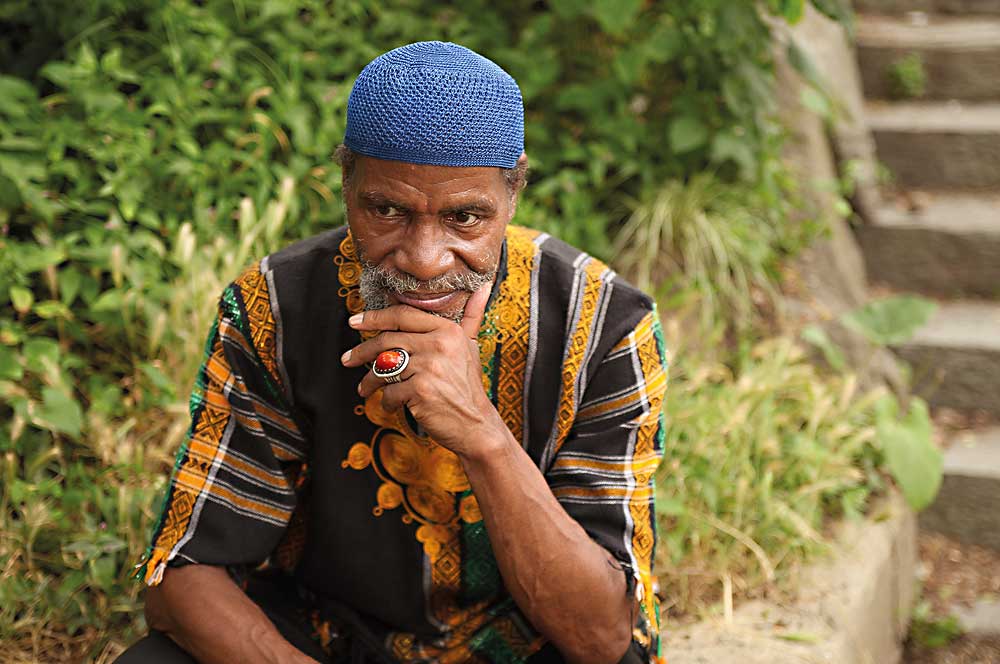
Suzan-Lori Parks often talks about her decision to pursue playwriting instead of her original calling, prose and fiction writing. As a student at Mount Holyoke, she was introduced by a teacher to James Baldwin, and she subsequently enrolled in the famous author’s writing workshop. She recalls the day when, after sharing some of her work in class, Baldwin called her out and said, “Miss Parks, have you ever considered writing for the theatre?” Whether Parks accepted the advice without question or resisted the new designation, she ultimately started writing plays—including, eventually, the 2002 Pulitzer–winning Topdog/Underdog.
Parks had a master teacher who spoke truth and helped her find her calling. But what happens when you’re an aspiring playwright, poet, novelist or artist of any stripe who doesn’t have regular access to someone who acts as a sounding board—who helps uncover your strengths, who is willing to give the honest, no-holds-barred feedback that enables you to grow? I witnessed one particularly effective example of this dynamic recently in New York.
I was a guest at the Sunday Night Poet’s Haven workshop at the Harlem home of Abiodun Oyewole, a co-founder of the Last Poets, an ensemble that is credited with inspiring the hip-hop movement. For 30 years, Oyewole has been opening his home to poets—established, aspiring and everyone in between—so they can try out new work and receive clear and honest feedback, informed by Oyewole’s years of experience as a poet, teacher and scholar. Seated in a chair facing a makeshift stage in his living room, he greeted guests as they began arriving in late afternoon. A platter loaded with his fabled homemade salmon cakes sat in the kitchen for all to enjoy. There was small talk and opportunities for new connections; CDs with examples of interesting new work or Abiodun’s own verses played in the background.
On the night of my visit, when a critical mass had assembled, the proceedings began with a group recitation of the “Poet’s Pledge,” followed by an invitation: “All right, who wants to go first? Who has something to share?”
After two or three poets had come forward to share their work, I realized that each ensuing critique was not going to be a simple analysis of the poetry being presented, but rather a wide-ranging discussion—part history lesson, part commentary on the contemporary state of race relations in the U.S., part reminder of seminal artists whose work may have been forgotten. There were riffs on the recent spate of movies that perpetuate the idea that the history of African Americans begins with slavery, not acknowledging the great civilizations that existed in Africa before the advent of colonization and the slave trade. Others contributed observations on the responsibility that comes with power—including the power of being an artist. As Oyewole’s co-commentator Afrikanus remarked the night I was there: “Hip-hop is a Rolls Royce, but you gotta watch out for the driver!”
As the evening wore on, some of the presenters received high praise, and others were given specific notes about how to improve their work. Still others were advised, echoing the exchange between Suzan-Lori Parks and James Baldwin, that poetry may not be their strongest creative vehicle, and that they should be open to other forms. In one such case, a young man recited a piece that tracked his life from early childhood. When he finished, Oyewole was silent for a few seconds. Then he said, “There’s some beautiful writing in your piece. But it’s not poetry. In fact, leave poetry alone and try writing short stories or prose.” This advice was followed by examples of artists with whom this young writer should familiarize himself—he was encouraged to read Cane, Jean Toomer’s 1922 book of essays and short stories; he was urged to remember that Ella Fitzgerald, who originally aspired to be a dancer, went onstage during amateur night at the Apollo and, at the last minute, sang instead of danced. She won a prize that night, and the rest is history.
I was struck by the remarkable generosity of Abiodun Oyewole—a revered artist, opening his home to others, sharing his knowledge with them, nurturing them, helping them find their individual voices and personal paths. On a more pragmatic level, the gathering seemed to be a fertile model for our times. After 30 years of holding these open houses, establishing a formula and a following, Abiodun and his collaborators (including his sons Obadele, Ebon and Ade, along with producer Michael J. Wilson) are launching a monthly public version of the workshop in a local jazz cafe. A curated lineup of poets will be followed by an open mike session, with priority given to regulars at the Sunday Poet’s Haven workshop. This way, the wider community can engage with these powerful voices, bringing forth words of beauty and struggle, offering new ways of seeing and understanding the world.
That Sunday night made me think: How are our most experienced theatre practitioners making room in their lives and hearts to mentor others and bring along new generations of artists, managers and technicians?

